the hidden voice 声有还无
Synopsis
This physical theatre production takes Yukio Mishima's novel Death in Midsummer as its starting point: The husband (Masaru) and wife (Tomoko) lose their two children and their sister-in-law in a tragic accident at sea. The husband receives a telegram and goes to the beach to handle the aftermath. Throughout the tragedy, the minds of both the husband and wife are filled with various “voices.” These “voices” may be reflections of external noise, or the steadfast sounds of their inner selves (“Id“).
The family tragedy faced by the two protagonists is indeed an exceptionally dramatic event, one that would be emotionally overwhelming for most people. While the work uses this narrative as a guide, it aims to do more than simply showcase the unique psychological states people experience in extraordinary circumstances. We attempt to delve into the everyday lives of ordinary people to explore the hidden voices within their hearts. Whether these voices are present or absent, how should we understand ourselves and how should we listen?
(a synopsis written by the Directors Ke Tang & Qianru Li)
The Hidden Voice (2020)
Inspired by Yukio Mishima’s novel Death in Midsummer
Directed & performed by Ke Tang & Qianru Li
Dramaturgy by Miao Chen
Physical theatre
Showcased at 2020 Beijing Fringe Festival and 2020 Hangzhou International Theatre Festival
终于,在丈夫崩溃抱头的蜷伏之后,在妻子踏上丈夫的后背、惊恐又茫然的张望之后,他们抓住了那个话筒,往下拽、拽,拨开那个橙色的开关——
没有什么话筒。那是一个手电。手电微弱的灯光探照灯一般,招引来海浪的声音,那海浪曾卷走他们的孩子。
那海浪如今却卷来两个苹果,也卷来此作的最后一幕:靠背吃苹果的他和她。吃苹果实在是一个在台上甚至从古至今滥用到令人发指的意象,这里的调用却同它最初的母题作了意义丰满的回响——
亚当和夏娃偷走的苹果,总会由海浪卷回来。
Finally, after the husband's collapse and crumpling into a fetal position, and after the wife steps onto the husband's back, looking around in terror and confusion, they grab the microphone, pull it down, and flick the orange switch—
There is no microphone. It is a flashlight. The weak beam of the flashlight, like a searchlight, brings the sound of the waves, the same waves that took away their children. Now, however, the waves bring two apples and the final scene of this play: the husband and wife leaning against each other, eating apples. Eating apples is an image that has been overused on stage, even to the point of being repugnant, but here it echoes the original motif with rich significance —
The apples stolen by Adam and Eve will always be brought back by the waves.
(part of a theatre review written by Miao Chen; published on the official WeChat account of Beijing Fringe Festival, 2020-11-18)
theatre live moments
2020.10.22.-10.23.
华粹工场, Chengdu, Sichuan
2020 Beijing Fringe Festival (theatre live)
Poster & photo credits: Ke Tang, Qianru Li & 2020 Beijing Fringe Festival
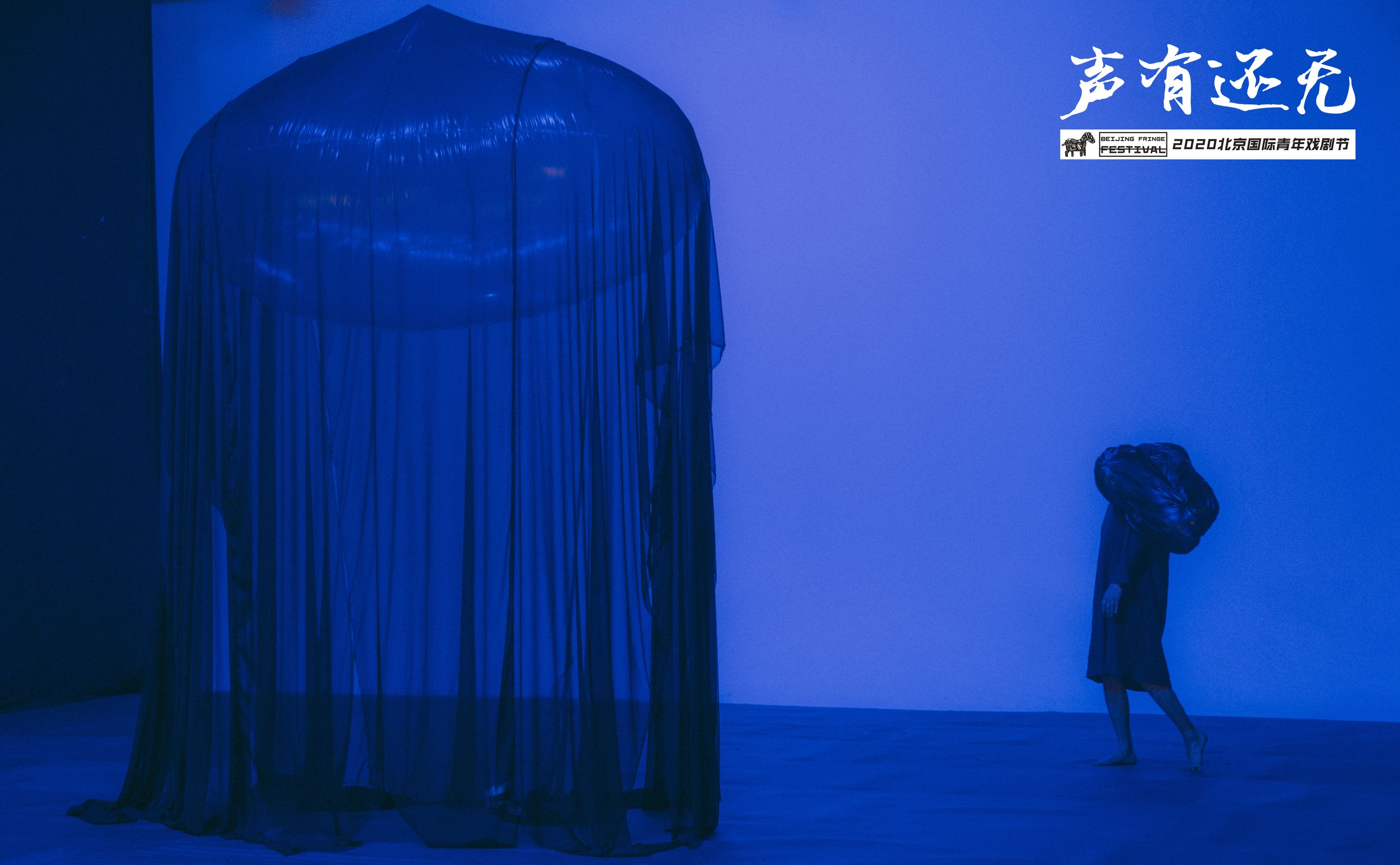
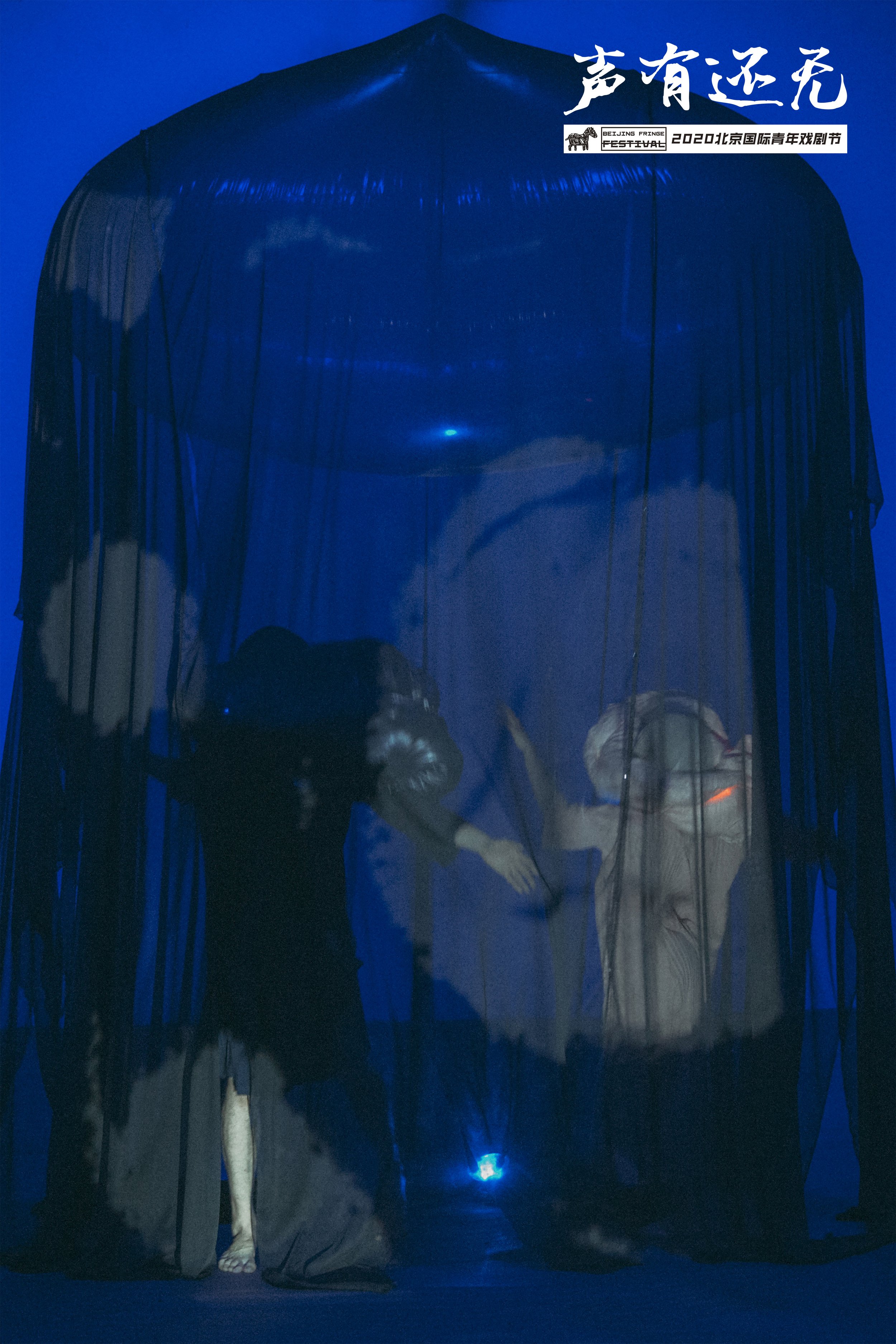
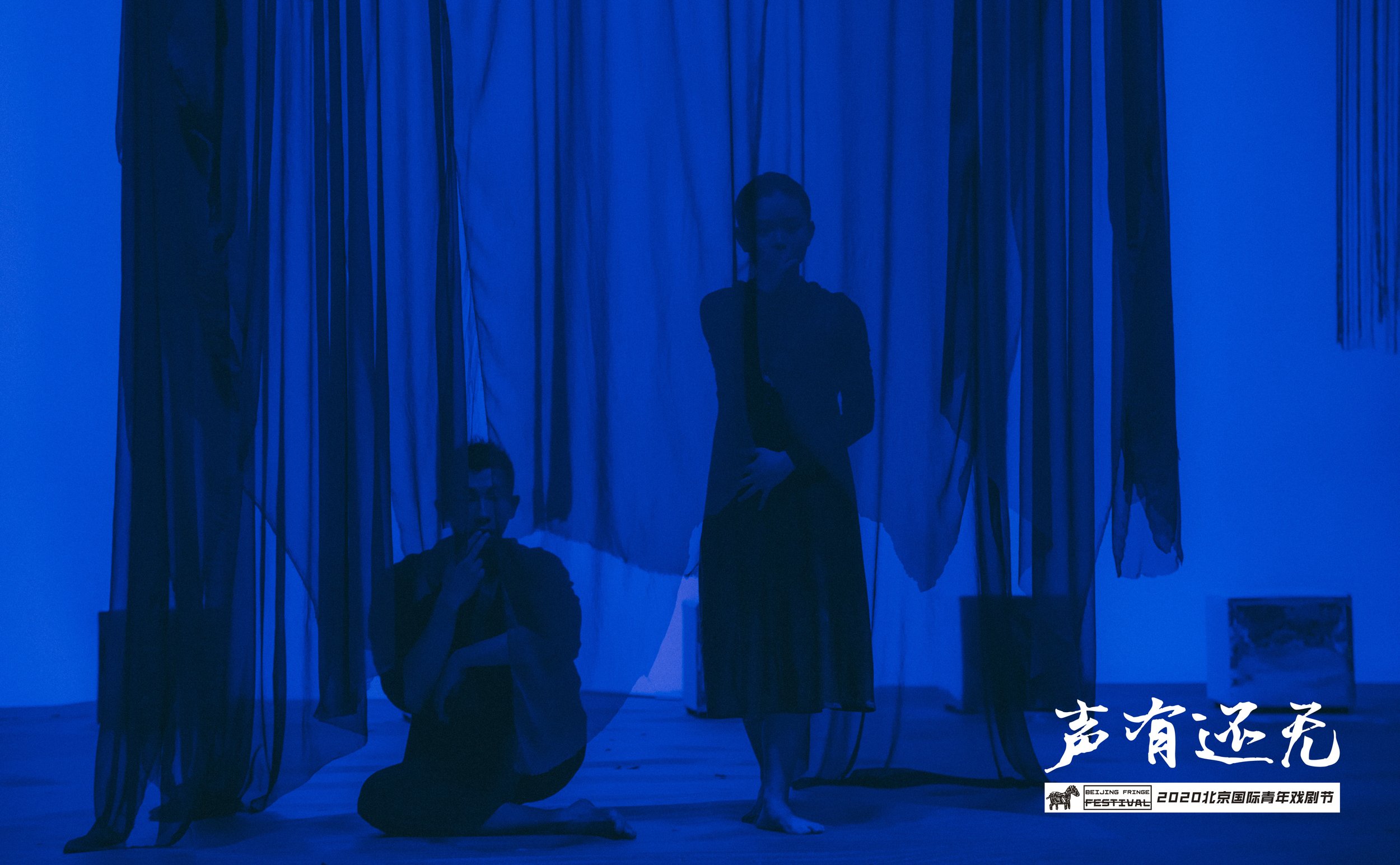
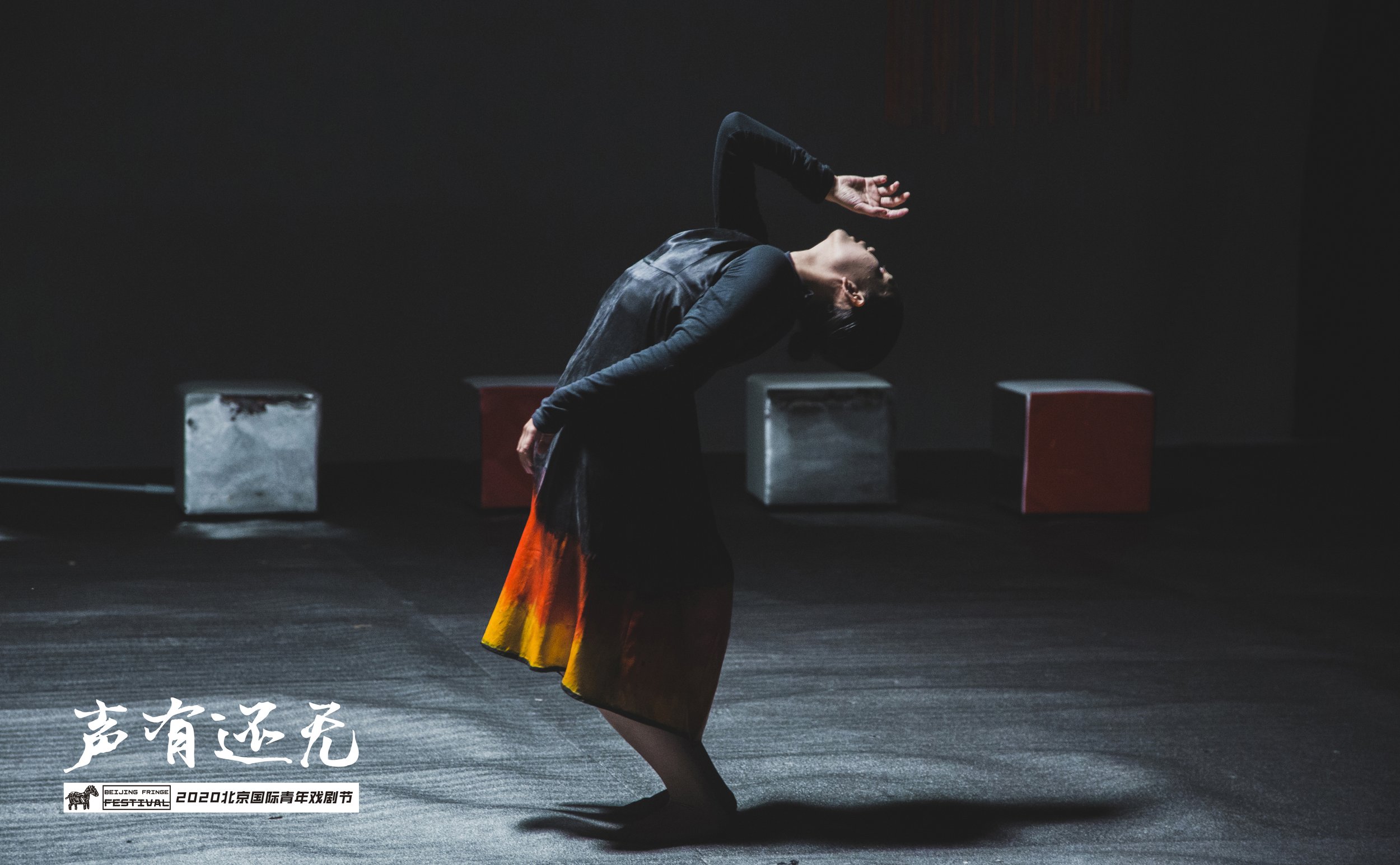
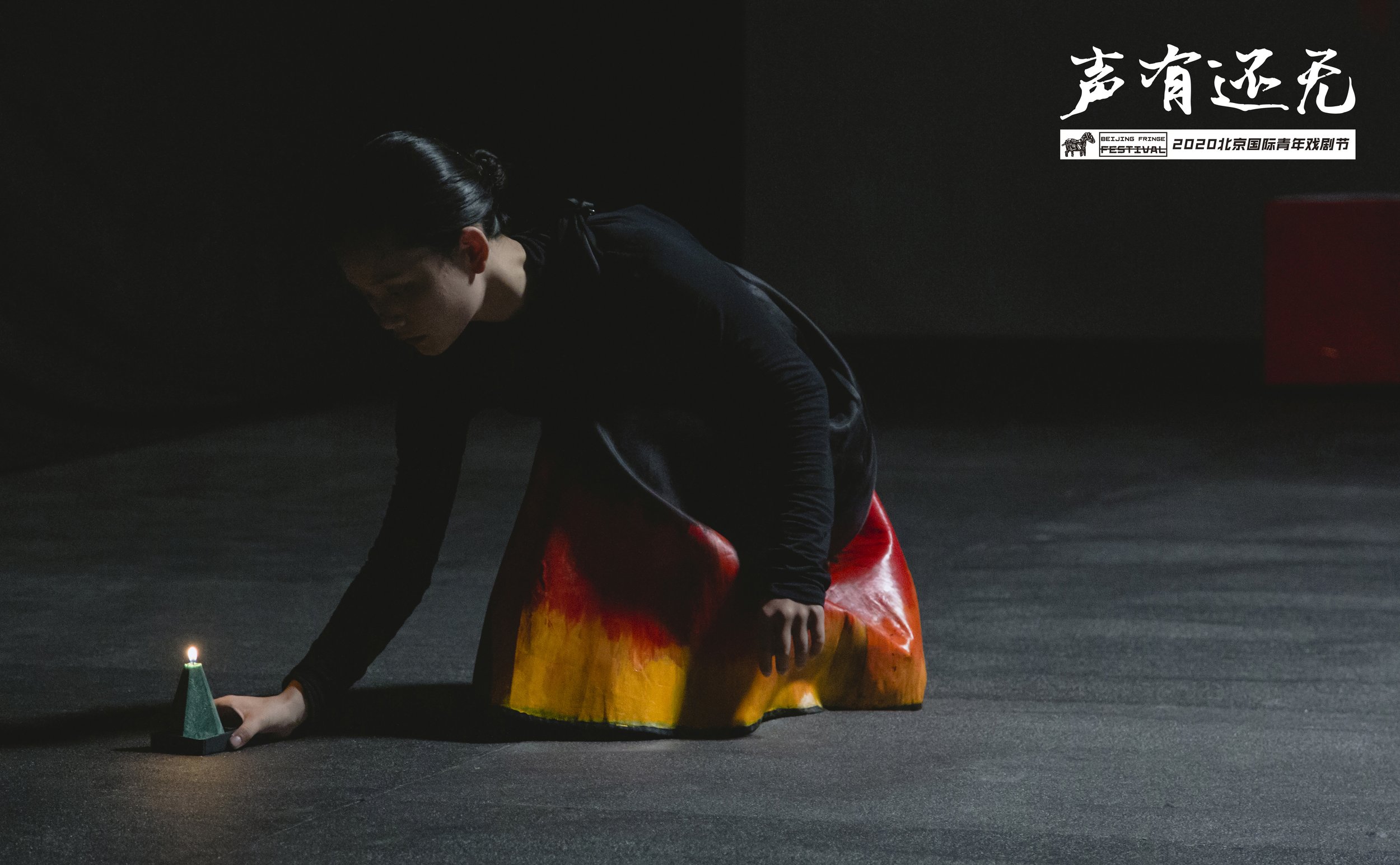
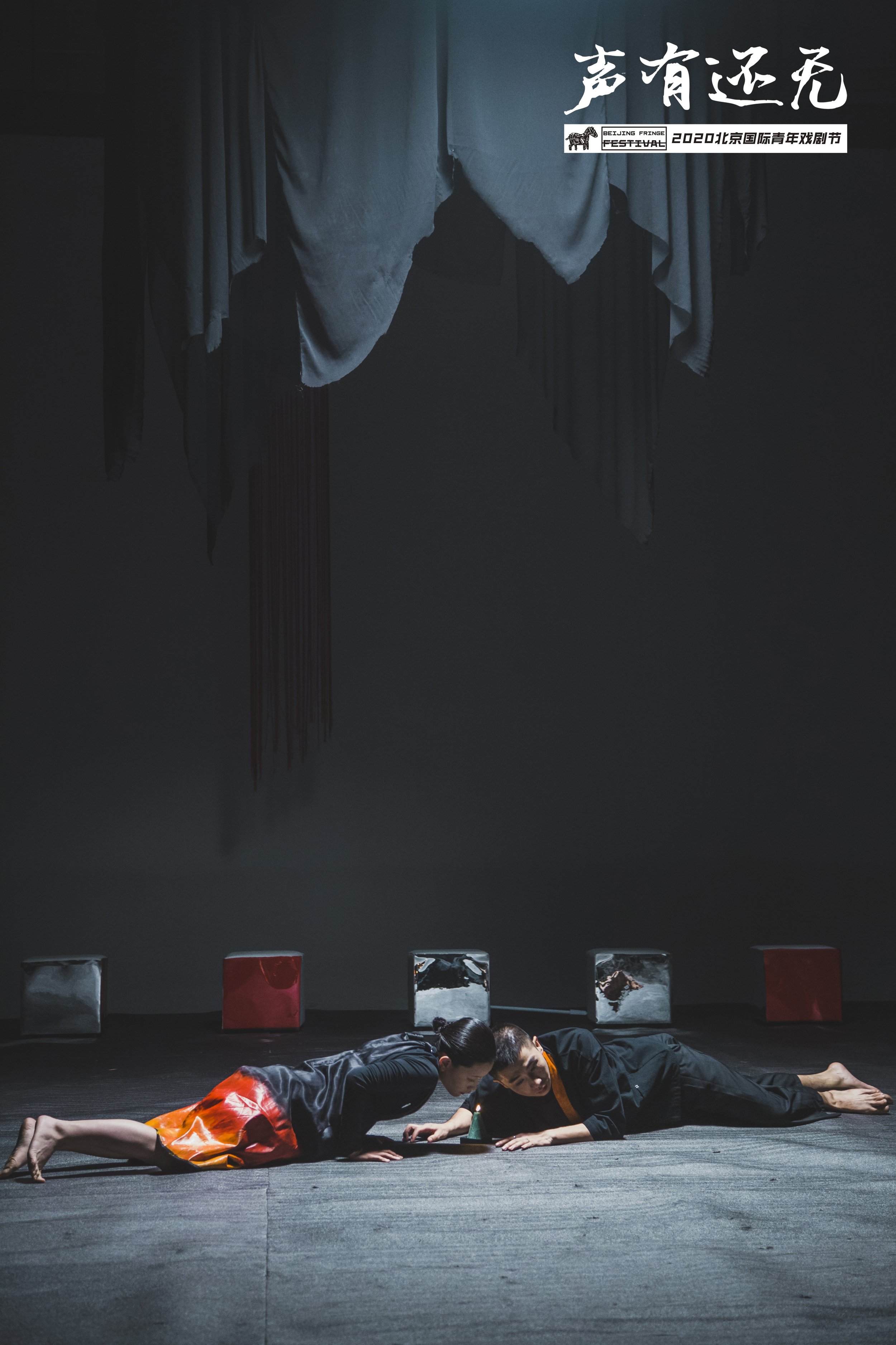
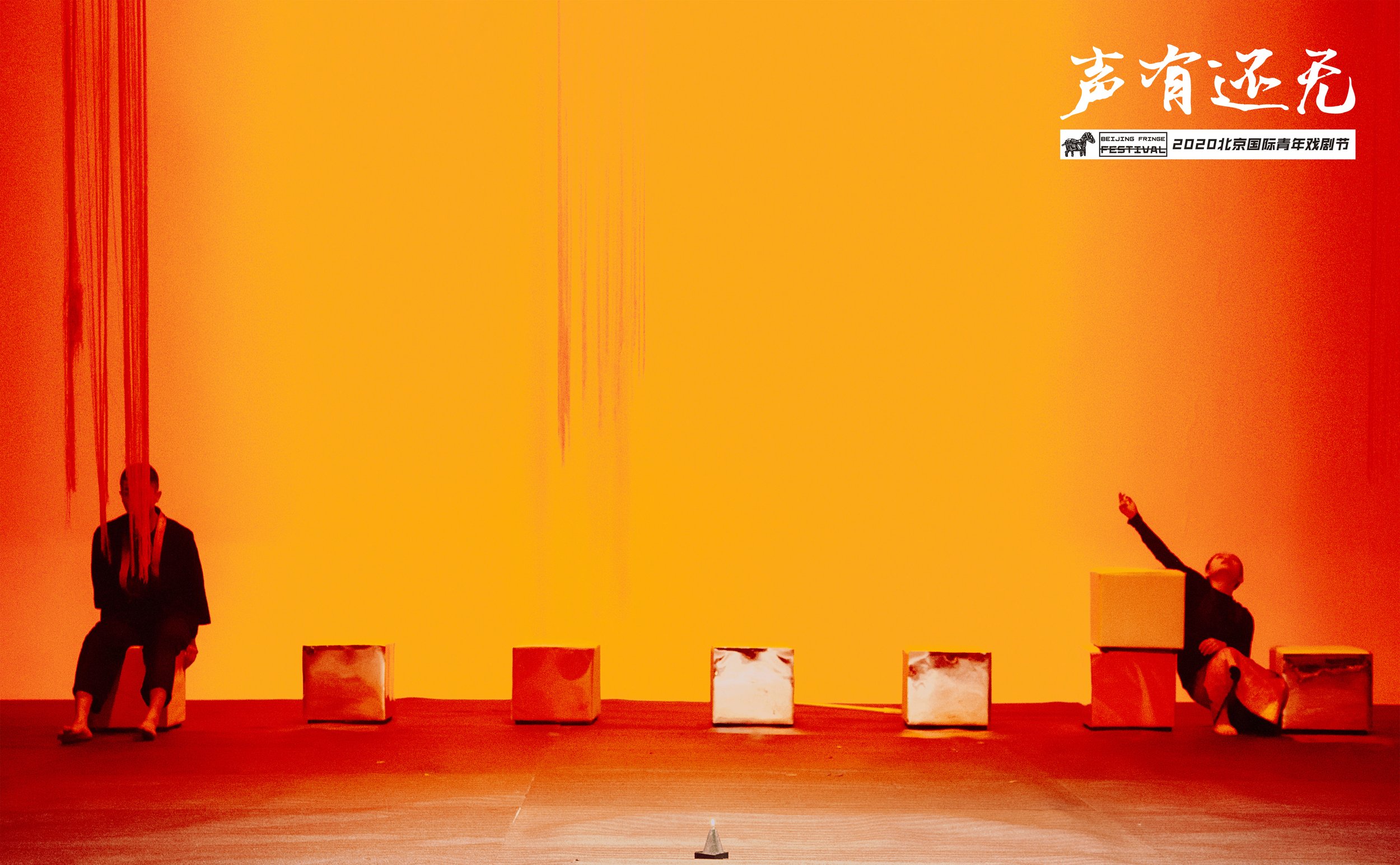
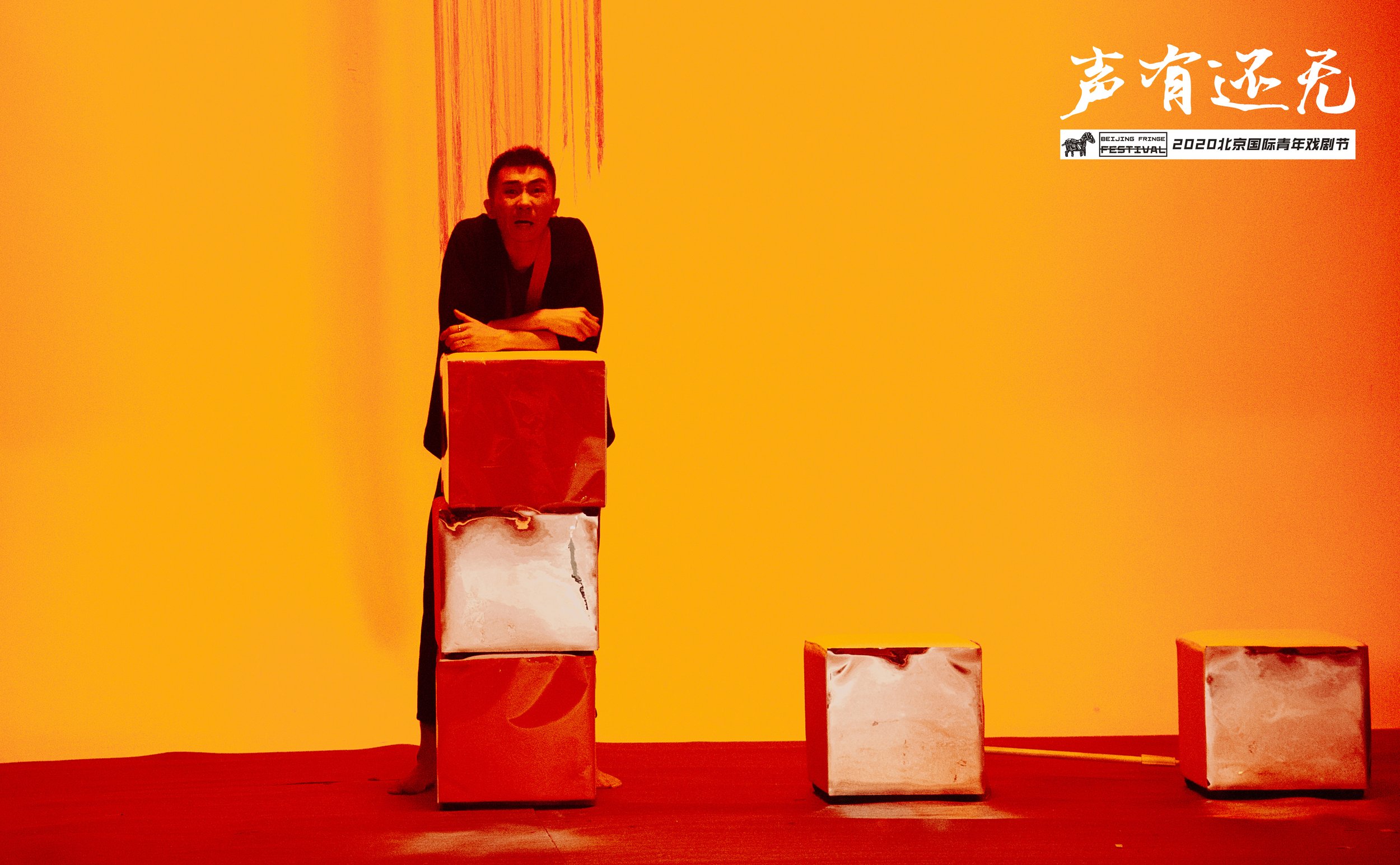
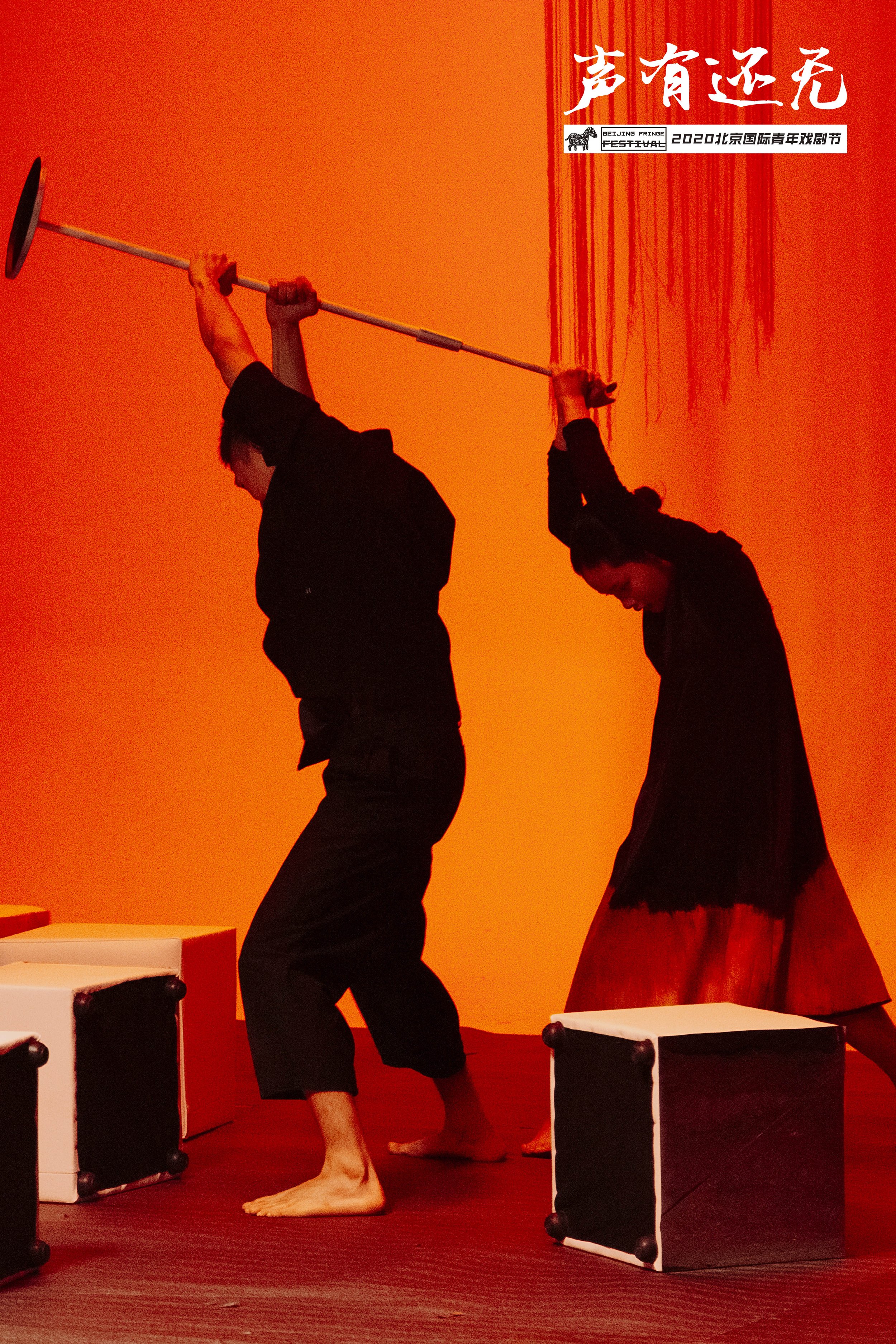
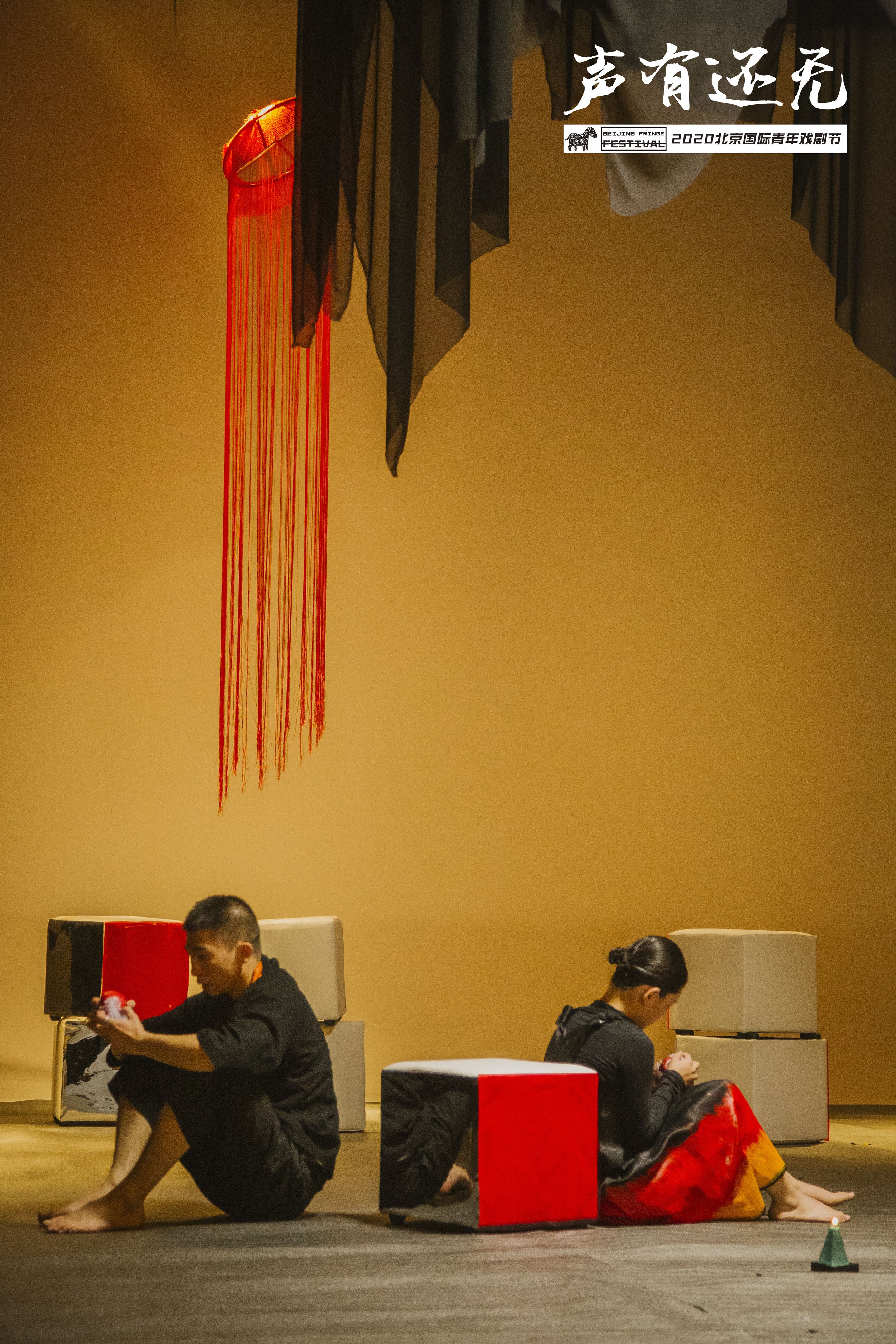
behind the scene
「晚夏明丽的霞光,也含着糜烂的火红。」
The bright evening glow of late summer also contains a decadent crimson.
— Yukio Mishima


